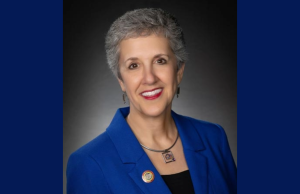If your nonprofit organization fundraises online, and reaches donors in California in doing so, you might be wondering how to comply with the state’s amended charitable solicitation law while its implementing regulations remain in limbo.
Overall, most obligations arising out of the law will affect entities that fundraise online and grant-making organizations that collaborate with them. But despite the lack of official guidance on the issue, there are certain steps you can take to meet current obligations under the law and navigate various uncertainties to prepare for the adoption of final regulations.
How Did We Get Here?
Gov. Gavin Newsom signed Assembly Bill (AB) 488 (https://bit.ly/3KfwqE6) into law on October 7, 2021. The law amended California’s Supervision of Trustees and Fundraisers for Charitable Purposes Act (Act), and it went into effect on January 1.
The state published its Notice of Proposed Rulemaking on May 27, 2022, and the regulations were expected to be finalized later that year. That did not happen. On November 21, the California Department of Justice issued a notice (https://bit.ly/3LXdzio) proposing modifications to the regulations. The modified regulations (https://bit.ly/3JWcdBH) would not go into effect until January 1, 2024. The period for submitting written comments on the modified regulations closed on December 7, 2022, so it is quite possible there might be further revisions to the regulations.
Therefore, at present, entities newly regulated in California are subject to the terms of AB 488, but they are still waiting for the issuance of final regulations implementing those statutory changes to the Act.
Why Was The Act Amended?
Prior to the passage of AB 488, the Act regulated only charitable corporations and other entities holding property for charitable purposes in the state, commercial fundraisers for charitable purposes, fundraising counsel for charitable purposes, and commercial coventurers. Commercial fundraisers, fundraising counsel, and commercial coventurers generally are entities that are paid to solicit contributions for charitable organizations; those that are paid to help with a charitable organization’s fundraising activities, but do not themselves solicit contributions; and commercial entities that advertise that the purchase or use of any goods, services, entertainment, or other thing of value will benefit a charitable organization or purpose.
When California first began regulating these categories of fundraisers, the use of the internet for fundraising was a far cry from how it is used today. Online fundraising has seen explosive growth during the past few years in terms of dollars raised, number of charitable organizations supported, and the myriad ways in which online fundraising is conducted.
The original contours of the regulations for commercial fundraisers, fundraising counsel, and commercial coventurers did not offer a practical regulatory framework for these proliferating novel online fundraising endeavors. Out of this shortcoming came AB 488.
Who Is Now Regulated?
In addition to any other entity previously subject to regulation in California pursuant to the Act, the law, as amended, now regulates “charitable fundraising platforms” and “platform charities,” and it recognizes that “recipient charitable organizations” may benefit from online fundraising arrangements between charitable fundraising platforms and platform charities. Here are three defining terms:
- Charitable fundraising platforms include “any person, corporation, unincorporated association or other legal entity that uses the internet to provide an internet website, service, or other platform to persons in this state, and performs, permits, or otherwise enables acts of solicitation to occur.” Five primary types of online fundraising activities are considered to qualify as charitable fundraising platform activity (e.g., commercial coventurer-type activity, peer-to-peer fundraising, etc.).
- Platform charities include “a trustee . . . or a charitable corporation . . . that facilitates acts of solicitation on a charitable fundraising platform,” such as soliciting “donations through a charitable fundraising platform for itself from donors who use the charitable fundraising platform with the implied or express representation that the platform charity may grant donations to recipient charitable organizations” and granting “funds to recipient charitable organizations based on purchases made or other activity performed by persons who use a charitable fundraising platform.”
- Recipient charitable organizations means “a trustee . . . or a charitable corporation . . . that is listed or referenced by name on a charitable fundraising platform or by a platform charity for solicitation purposes. In defining these terms, AB 488 recognized a common structure (albeit, not the only structure) for fundraising online whereby a platform would contract with a grant-making organization to accept donations made online, with the grant-making organization then recommending donations be made to the beneficiaries (such as your nonprofit) that are listed or selected by donors on the platform.
Which Nonprofits Must Register
The lack of implementing regulations for AB 488 gives rise to a common concern affecting many nonprofit organizations, particularly smaller organizations that may not already have a nationwide or multi-state presence: must your nonprofit be registered to solicit contributions in California if it simply benefits from fundraising efforts that take place on a charitable fundraising platform?
In many cases, the answer appears to be yes. If your nonprofit is listed as a beneficiary on a website or other platform (such as a social media website) that offers fundraising online, including in California, your organization might need to register with the California Registry of Charitable Trusts.
What It Means To Be In Good Standing
Charitable fundraising platforms and platform charities may only solicit, or allow solicitations, or receive, control, or distribute funds from donations to a recipient charitable organization or other charitable organization if the beneficiary is in “good standing.”
According to the Act, to be in “good standing” means that the beneficiary has not had its tax-exempt status revoked by the Internal Revenue Service (IRS), or the California Franchise Tax Board (FTB), and it has not been prohibited from soliciting or operating in California by the Attorney General. Notably, to be “not revoked” or “not barred” is not the same as to be “compliant” or “registered.” Therefore, if considering the statute only, the good standing analysis is, in many ways, simple.
The modified regulations, however, are less than helpful in clarifying what it means to be in “good standing.” Although not yet in effect, the modified regulations state that a charitable fundraising platform or platform charity may rely on the state’s May Not Operate or Solicit for Charitable Purposes List (the “List”) to determine a charitable organization’s good standing. The Attorney General’s Office (https://bit.ly/42U13pN) suggests that the public refer to the modified regulations as an informal (and non-binding) guide until final regulations are formally adopted.
The modified regulations also provide that charitable fundraising platforms and platform charities may confirm good standing by performing a manual search of the Registry of Charitable Trusts database on the Attorney General’s website. To the extent there is a discrepancy between the two sources, whichever shows the charitable organization as in good standing will prevail.
The state recognizes on its website (https://bit.ly/3TVnQxj) that the “latest” data for charitable organizations appears on the database (not the List), and the List thus far appears to be updated only periodically. As such, it is unclear why the regulations point to the List as a first course. This is just one of the practical details causing consternation for the nonprofit community — although your organization’s registration may appear in “good standing” on the database, if you find your organization’s name on the List, chances are it will be included on that document for at least a few weeks, if not more.
What You About Good Standing In 2023
If your nonprofit organization has already registered with the California Attorney General’s Office to solicit contributions in the state, you should first check to ensure that your organization is current with its obligations. Review the state’s database using the Registry Verification Search. This information will almost certainly be more up to date than the List, though you should check the List, too.
Although the modified regulations would provide that a discrepancy between the results of these two sources should be construed in your favor, you should try to resolve the issue as quickly as possible. This is especially true when working with larger charitable fundraising platforms, whose policies surrounding which source(s) they review may be narrower than what is allowed by the Act and what will be allowed under the modified regulations, should they be adopted as written.
If your nonprofit organization is not already registered with the California Attorney General’s Office to solicit contributions in the state, you should carefully consider your connection to the state and resulting registration obligations. Nevertheless, your out-of-state nonprofit organization may qualify as in good standing if it otherwise has not had its tax-exempt status revoked by the IRS, and if it has no records with the FTB (i.e., it is not revoked) or the California Attorney General’s Office (i.e., not barred from soliciting).
What Else You Should Consider
Most other new obligations stemming from AB 488 apply to charitable fundraising platforms and platform charities, and to a lesser extent, commercial fundraisers, fundraising counsel, and commercial coventurers. Although their responsibilities are not likely to be of primary concern for your nonprofit, being familiar with their obligations is helpful during negotiations for future fundraising events. To this end:
- Ask staff at a charitable fundraising platform or platform charity with whom you wish to work how they will handle funds raised for your organization. Will a separate fund be created? What are the platform’s processes and timelines for accounting for funds and disbursing those to your nonprofit organization?
- Review the disclosures a charitable fundraising platform or platform charity intends to publish in connection with your fundraiser. The disclosures should strive to prevent the likelihood of donor deception and confusion. Depending on the nature of the campaign, those disclosures may need to conspicuously provide:
- A statement about the entity to whom the donations will be made, whether that is the charitable fundraising platform, a platform charity, or your nonprofit organization).
- If your nonprofit qualifies as a recipient charitable organization, a statement explaining that your nonprofit may not receive donations, grants, or recommended donations and why that may be the case (such as because the platform charity that issues the grants determines there has been a material change in your organization’s eligibility to receive those recommended donations).
- Unless your nonprofit receives donations contemporaneously after the donation is made online, a statement explaining the maximum time it takes to send the donation or a grant of the recommended donation to your nonprofit organization.
- Except in the case of certain commercial coventurer-type platform arrangements, the fees or other amounts, if any, deducted from or added to the donation or a grant of the recommended donation that are charged or retained by the charitable fundraising platform, platform charity, or any other partnering vendor, other than digital payment processing fees.
- A statement as to the tax deductibility of the donation, except in the case of certain commercial coventurer-type arrangements.
Until the modified regulations are finalized, they will not carry the force of law in California. Nevertheless, AB 488 is in effect and regulated entities are subject to the law. Thus, if your nonprofit organization uses online charitable platforms to fundraise, or otherwise allows those online platforms to fundraise on your behalf, you should familiarize yourself with the contours of the law.
Learning the new requirements now will position you and your organization best for successful fundraising campaigns this year and beyond.
*****
George Constantine is the chair of Venable’s Nonprofits Organizations Group. His email is [email protected]. Cristina Vessels is an associate in Venable’s Nonprofits Organizations Group. Her email is [email protected]









